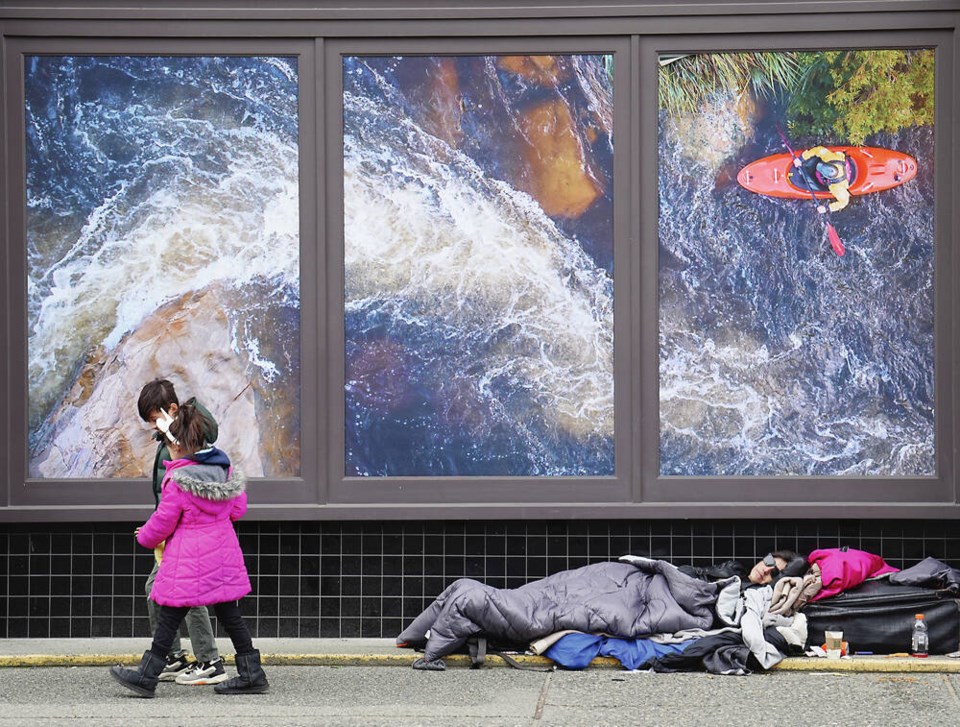Overnight shelters in Victoria that provide refuge from freezing temperatures were forced to close Sunday due to a lack of staff, leaving people out in the cold.
Victoria’s extreme weather alert was cancelled Sunday after six consecutive days in effect amid a cold snap last week.
Though temperatures remained low — hovering just above zero in the early hours Monday — staff shortages meant the shelters that had opened each night since last Monday couldn’t open Sunday night.
Niki Ottosen, who collects tents and other supplies for unhoused people through her organization the Backpack Project, said she’s seeing “extreme suffering” right now and is hoping everyone living outside survives as cold and snowy weather persists.
“I see people sitting on the cold concrete, and I’m trying to get them sweaters and hand warmers. Their hands are so red, and their lips are blue,” she said. “They’re literally freezing and suffering. It’s hard to watch.”
Temperatures Monday night were forecast to dip to zero with rain and wet snow, while Tuesday night is expected to be even colder, at -2 C.
Overnight shelters at the Salvation Army downtown, St. John the Divine Church on Quadra Street, run by the City of Victoria, and Rock Bay Landing were operating last week during the extreme weather alert, although some nights only one was open.
The three shelters were set to open Monday night, providing 80 spaces, the Alliance to End Homelessness in the Capital Region (formerly known as the Greater Victoria Coalition to End Homelessness) announced Monday afternoon.
City spokeswoman Colleen Mycroft said the church shelter was closed Sunday because of an outbreak of flu affecting staff.
Staffing challenges have plagued the Salvation Army’s extreme weather shelter space since the start of the pandemic, said Jeffrey Baergen, executive director at the Salvation Army in Victoria.
The overnight shifts are inconsistent, with little to no notice, making it not very appealing to job seekers, Baergen said.
“It’s always been the hardest program to staff,” he said. “I would also say, all of our programs, we’re struggling to staff.”
In the past, the extreme weather shelters relied primarily on students, he said. “That’s just not the case anymore.”
Challenges with staffing have eased slightly in the last year, with more applicants coming in than during the early days of the pandemic, but the numbers haven’t returned to what they were pre-COVID, Baergen said.
The Salvation Army is looking for community members who are willing to step up to support this “critical, life-saving program,” Baergen said.
“When there’s nobody to work it and we can’t open it, and it’s below-zero temperatures out there, we mourn for the community that’s left outside with nowhere to go,” he said.
Ottosen is concerned that even with the extra spaces available when extreme-weather shelters can open, there’s not enough room for everyone in need, and those who go risk losing any belongings that they can’t take with them.
The extreme weather alert is activated when temperatures fall to at or near zero, rainfall makes it difficult for people to remain dry, and during sleet, freezing rain, accumulating snow or sustained high winds.
• Anyone interested in applying to work at the Salvation Army’s extreme weather shelter can visit victoriaarc.org/employment-opportunities for more information.



